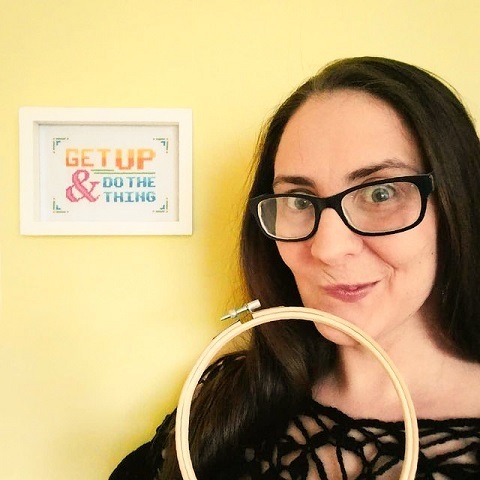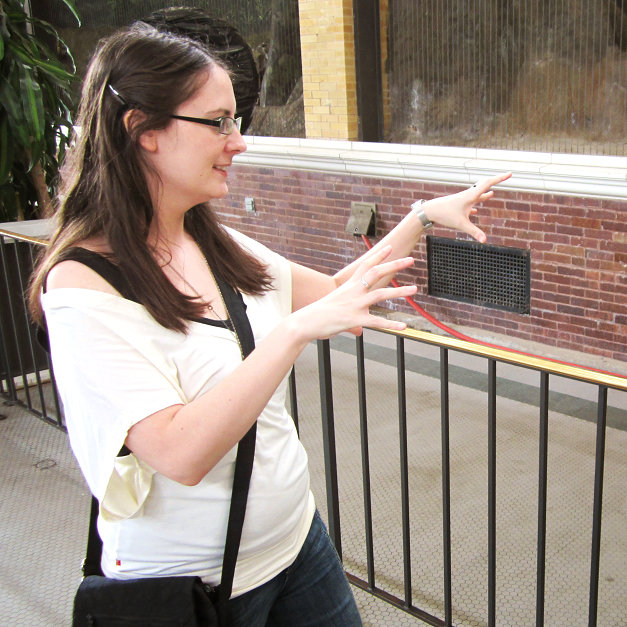Programming started as a hobby for me as a teenager. I always “liked computers” so thought I’d give it a try. I never intended to make a career out of it because it seemed so hard at first, but over a decade later, I’m decently accomplished in my field and get paid bank for it.
As a hobby, it’s fantastic. You can add in missing features to open source software you use (including the one I’m posting this to right now!). You can make your own little apps to fill niches you haven’t found an existing program for. You can automate boring stuff from other work. You can make mods for certain types of video games. Or if you’re really ambitious, you can even make a video game (but I gotta tell you, video games are hard and need much more than just programming – I do not recommend making video games as a goal unless you’ve thought out just what that involves).
If you make a career out of it later, cool. But even if you don’t, it’s a fun and rewarding hobby that costs almost nothing. As long as you have a computer (preferably not a mobile phone, though it’s technically possible to use a phone), you can program. Hardware doesn’t generally matter. Any cheap laptop works. All the tools you need have free and often open source ones you can use. You only need to pay for web hosting if you make a web tool and want to share it with others.
Programming is super useful as a scientist, especially with how easy it is to collect huge data sets these days.
This, entirely. And especially with how tech-averse most scientists are in my field (biology), it’s really easy to set yourself apart with just some basic programming knowledge
Taking a break from making a video game to read this thread lol, you are not wrong about that part! Or any part, actually, programming is awesome and even outside of using it for work it’s come in handy at least a little bit in every other hobby I’ve ever done. Up to and including knitting.
Programming is great.
On that note, kinda similar: Selfhost your services. There is a lot of cool software that you can run on your old computer, or on a more dedicated machine. A file storage, a media server, your very own AI server, the lost is endless.
I’d like to learn more about how to do this. I’ve got a home theater PC I’ve been using as a NAS via simple windows & samba file sharing, but I’d like to expand that to tools like Jellyfin and potentially something like writefreely or a podcasting platform for others to enjoy. I’ve looked it up cursorily but would appreciate if you could share additional resources my way in developing my own server here as well. (All good if you don’t have any to share, I can just google as well I suppose)
Sure I can talk a little. First things first: If you’re hosting on windows, you should probably use a different OS.
If you’re looking for something easily manageable, there is a couple of specifically made systems made for easy administration, True as comes to mind, but that’s not what I use.
If you’re more proficient, or ready to learn, you should really have a Linux distro on your server. I recommend Debian 12, but there is many valid choices.
When setting this kind of system up, the essential service that you want to run all the time is SSH, as that’s how you will configure and use the server. On Debian 12, you can just check a box in the installer and it will set up ssh for you.
After that, you don’t need a screen or keyboard on your server anymore, just go to any of your work stations and go
ssh user@(your server IP)and boom you get a shell on your server.Okay, so now what? Think about what you want to host. Then just look up the documentation of your stuff. Learn Docker, as it will make hosting way easier. If you’re a friend of the visual click click interface, you’d probably want portainer.
With docker, you can host a ton of service without actually having to do a lot of configuring with them. Want to host a database? Marinade Want to host a media server? Plex
Okay, now you probably think that sounds way too complicated and are about to get demotivated. Now you see, the most important thing is to start. If you set it up yourself, your first server will be a mess, and that’s okay. You will scream at docker because it does weird things, you will scream because your Webserver finally connects with the database and you can play your music and you will break things to the point where you will just reinstall. It’s a great learning experience.
Some time later, you will just go “hey that service sounds cool”, copy some compose file, tweak it a bit, and boom you hosted a new service in a couple minutes.
About ressources: I mostly use just what’s provided by the stuff I want to use. A lot of my information that goes directly to the act of hosting comes from Readme files in git repositories or descriptions on docker hub. Besides that, search for things you encounter.
In general, I’ve found the first party documentation of the things I use in tech to be the most reliable, but that seems not for everyone.
There isn’t a magic central Ressource, besides your head when you remember doing something before. Selfhosting/Homelab communities on Reddit or now Lemmy can help with ideas.
Meanwhile my dumbass has been trying to be even remotely functional with programming. A degree and a software dev job later I still don’t think I really get it.
That happens to us all. My first year I felt useless. Once I started running projects and getting the opportunity to actually design our framework, I got a lot more confidence. The first project I ran I was not prepared for. But I improved in confidence so much while I did it.
Imposter syndrome affects us a lot. But even if you’re a shit dev, remember this: we literally do magic. Think about it for a moment. We write words in an esoteric script to convince electricity to create things that didn’t previously exist. Even the worst wizard is still a wizard. And the best part is that they can improve! There’s so many resources out there to improve your skills. It might not be for everyone, but I love my job.
I actually got my first real project a few weeks ago after over a year here and just completely screwed the pooch on it. I had like 2 methods written but no functionality after a week with it. I don’t know if I was asking the wrong questions or what but the product owner which was one of our senior devs really had me struggling.
I’m finishing up on a course this week that covers a few things that my school didn’t cover and then I am gonna start working on my own project to hopefully get my bearings straight. I don’t really have one in mind but I’m considering a messenger app or ye ole student registry type app that a lot of people start with.
Hey, we all start somewhere. I remember the first time I broke prod I was freaking out. I skipped lunch and a company event with my boss while we figured out what happened, and we had a few major customers who couldn’t use our software all morning.
Screwing up is what makes us devs in my opinion. When the shit hits the fan and the fire flares, that’s when we find out our real mettle. I like to joke that I moonlight as a fire fighter lol.
Keep at it and I promise you’ll get your confidence when you have that major breakthrough and fix a complicated problem with a simple solution.
If you’re gonna work on a personal project I suggest doing something you want that isn’t easily accessible. Something everything out there is subscription based or something. Do something fun that you will actually use. That helps you stay motivated.
Thankfully what I mostly do right now isn’t gonna break anything major but I have had a few after 5 calls from product owners because certain things in our software that is custom configured for each client might have been done wrong(it’s kind of common enough that it isn’t that big of a deal) and it’s mostly a quick fix and from lack of communication. Where I struggle with is that I am first to call for support issues and I still don’t quite know the software or the industry like the back of my hand.
The small project I am rolling around in my head is probably already made but I want to be able to create a chat app that has full E2E encryption with chat history/room deletion based on if the chat hasn’t been active for a few hours or whatever. Sort of encrypted chat but with the killswitch of a VPN. But I don’t know if it already existing matters as much as the experience I would get from just doing it.
Also thanks for the encouragement. Lately especially I have been beating myself up because I should really be further along than where I am.
There are many free (static) web hostings: GitHub Pages, Azure, Vercel, and so on.
On the rest of your comment, I agree
Same. Been a hobby since I was 13 back in 1984. 39 years later, I’m still doing my hobby and being paid for it. I’ve made a career out of it. Although, I’ve done it so much I no longer do it as a hobby. It’s just too much. If I never saw another computer or programming language again for the rest of my life, I don’t think I’d mind. Hoping to retire within the decade.
It’s pretty much how it started for me. It can work extremely well if your job can tie it in. But at that point expect it to stop being a hobby.
It’s not free, but you have to pay for it no matter what, so it kinda is, but cooking. Everyone should learn the basics of navigating a kitchen and the basic terminology.
Singing and dancing are both learnable free. Art in general tends to be cheaper. Usually anyway.
Intellectual skills are all fair game, there’s wide availability online. You need to start with Information Literacy though, to kinda unlock the rest. Otherwise you’ll waste too much time on bullshit.
I kind of resent the whole “celebrity chef shows you how to cook” media thing because it makes something that should be approachable seen really intimidating for a beginner
Since I’ve begun “trying” in the kitchen, I eat way healthier than ever before, and most of my meals are better and cheaper than restaurant equivalents.
Can you expand on what you mean by information literacy?
Rather than try myself, I’ll let a bunch of school teachers and librarians do it instead. They’re better than I am.
Here is an alternative Piped link(s): https://piped.video/P4HWuRRUMBs
Piped is a privacy-respecting open-source alternative frontend to YouTube.
I’m open-source, check me out at GitHub.
Next time something breaks, try repairing it. Pull it apart and look for whats broken, google if you need info or ideas on fixing the problem, and go for it. Worst case scenario you can’t fix something that wasn’t working, best case scenario you’ve saved something from the scrap pile. Either way you’ll have a little bit of knowledge you didn’t already, maybe some skills
Unless it has to do with electrical wiring or anything dangerous. Part of learning to repair is knowing your limits!
Some things are very dangerous even though for inexperienced they might not seem so. Case in point: the microwave. It has a powerful capacitor and if you try taking it apart, it might shock you even when disconnected from power
Adding to that, capacitors can take a very long time to discharge. They can still do serious damage after not being connected for months
Never fuck with a microwave, you’re asking to become the path of least resistance for that capacitor to unload through.
I can’t count the number of expensive things I’ve been given for free or cheap-as-free, and fixed it with 0 to 1 easy steps.
It’s astounding how easily people give up on things.
Touch typing.
I’ve been practicing this. In 30 years when computer input is primarily voice and touchscreens, we’ll be the only ones left. It’ll be like knowing how to use Morse code with a wireless telegraph.
deleted by creator
I’m a software dev and one of my coworkers is a hunt and peck typist. I couldn’t function that way. He’s actually incredibly fast though, so it works for him. Definitely wouldn’t for me.
I had to look it up, but chorded input? What made you switch to it? Interest or necessity?
deleted by creator
Fun fact: My left hand is on gamer pose wasd for typing (not to f position). Doesn’t really hinder me from speedy touch typing.
I’m more of a QWER gamer.
You strafe with Q and E?
Lear how to cook. Just grab a simple online recipe, a bottle of your beverage of choice and try cooking something. It’s a really simple and useful skill acquire.
Recently i picked up an electric smoker and oh boy it’s been life changing. If you want to be the “cook” in your family this is the easiest way.
Take your meat of choice and smoke it. Make sure to tell everyone how long it took to smoke so they know to tell you it tastes good
I approve!
The best thing for home smoking is electric- best control, set it & forget it.

What really helped me learning to cook was experimentation. I was always ok at following recipes but at some point I decided to cook Bolognese every week and every time I cooked it I had to use an ingredient I hadn’t used before. Cooking the same thing with variation helped me learn the effect of adding different ingredients.
Having cooked professionally for the last 15 years, I take this for granted sometimes.
It amazes me how many people can’t cook anything more complicated than kraft dinner. I don’t mean to rag on anybody, but it’s a skill you really need to learn if you don’t know how. You’ll save a ton of money and there’s a lot of simple dishes that can impress people.
You’ll save a ton of money
idk dude, kraft dinner is pretty cheap.
Agree. The number of people I know who “don’t” cook blows my mind. 75% of my repertoire takes less than 30 minutes of involvement to cook. It’s cheaper, healthier, and a great zen thing that’s totally different from my day job.
For those trying to get started, do a meal kit that involves cooking, and start there. Not having to buy ingredients or plan things out makes it less intimidating.
What really helped me learning to cook was experimentation. I was always ok at following recipes but at some point I decided to cook Bolognese every week and every time I cooked it I had to use an ingredient I hadn’t used before. Cooking the same thing with variation helped me learn the effect of adding different ingredients.
This is an animated site for teaching you how to tie different knots.
With a piece of string and perhaps a few wooden dowels, you can teach yourself a variety of useful knots for different needs.
Thank you for this rabbit hole.
Saying grace before you tie a bowline.
This barely qualifies as a hobby, but at some point I decided to learn how to count in binary on my fingers. It’s handy if you need to hold a number in your head for a bit and can’t write things down, or to count past 10 visually on your fingers for somebody. There are probably YouTube videos on it. I literally can’t remember where I learned, but I practiced a lot when bored in church. It’s relatively non-disruptive and practicing can eat a decent amount of time.
0 materials. Just takes time. Literally free.
I practiced a lot when bored in church
I’ve heard church frowns upon non-binary people. But I had no idea they convert people to binary counting.
I did the same when Masahiro Sakurai explained how to do so when revealing Byleth for Smash Bros. Ultimate. It’s come in handy a few times when needing to count things out, and honestly can be a fun exercise for dexterity to just count to 31 on each hand.
Here is an alternative Piped link(s): https://piped.video/CXhbyCGi5hs
Piped is a privacy-respecting open-source alternative frontend to YouTube.
I’m open-source, check me out at GitHub.
Oh absolutely, you just gotta be careful who you direct those 4s toward
Clothing repair. Patch, darn, replace a zip or button. Expand that to full sewing and it isn’t free but you’ll save a bucket of money, have clothes that are exactly what you want, and don’t disintegrate in 6 months
I learned the basics of 3D printing and Fusion 360 (CAD software) via youtube. And the 3D printing has gotten easier since I learned.
3d printing without basic cad skills is almost useless imo. I use freecad now but I’ve made tons of useful precision fit things using tinkercad.
Freecad is based. It feels like a superpower to be able to imagine relatively high precision parts and make them real in just a few hours. Tailored exactly to your project.
🤮 Freecad is a barely functioning mess, fusion360 is a professional level cad that’s free for hobbiest and infinitely more usable.
I spend most of my day doing cad work, I can jump between Catia, NX, Solidworks, Fusion360 with no problems but Freecad is just horrible. I want to like Freecad but the simplest things are the hugest pains in the ass, it’s feature set is huge but none of the features are actually polished.
The gears workbench is top tier.
Learn a new language. Tons of free resources online. Borrow books or audiobooks from your local library. Make friends with others interested in learning and teaching each other new languages.
This
deleted by creator
Hi there! Looks like you linked to a Lemmy community using a URL instead of its name, which doesn’t work well for people on different instances. Try fixing it like this: !sailing@lemmy.world)
deleted by creator
programming
Seriously. I’ve written little things (batch files, scripts, python programs) over the years which saved me so much time at work or at home. Teach the computer to do the repetitive stuff so I don’t have to.
Mental math. People overcomplicate how difficult things are but quickly calculating numbers and percentages is a super useful skill that’ll save you a lot of time.
Warning - incoming Redditcomment©®™
Uh, that’s mental arithmetic, not maths
Snorts
I just recently took up cross stitching. You can learn all the basics for free on YouTube and there are tons of cross stitching communities online and there are tons of free patterns online too. All the supplies you need at first are some thread, some Aida cloth and needles. When I started I got a stitching hoop too I think my total investment was about $20.
Well hey fancy seeing you here 😄
It is my sworn duty to drop the community link wherever it’s relevant so please don’t mind me jumping on your comment.
!lemmy_stitch@sh.itjust.works <-- we have cute cross stitch, satanic cross stitch, occasional embroidery, and at least once we’ve accidentally had crochet too!
I’m working on some new pieces now so hopefully I’ll have something else to post soon!
If you have a patch of soil with good sun exposure you can learn how to grow your own food. It’s not free but you can be very thrifty while doing it. Huw Richards has published a nice book on the cheapest ways to garden.
Even in a pot on a balcony you can grow a blueberry bush. They’re pretty hardy, nice looking, no thorns, the flowers are good for pollinators, and you’ll be able to pick and eat fresh berries. One little bush won’t produce enough at one time for a pie, but at least they don’t get moldy like strawberries.































